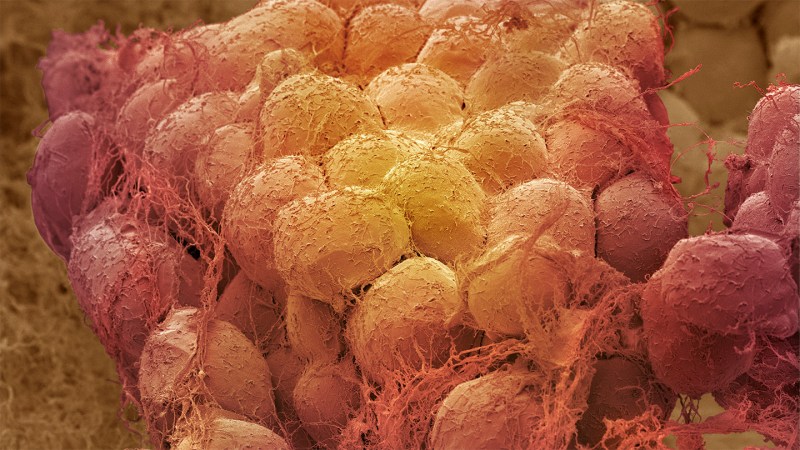Fat tissue may commit weight to memory.
For people living with obesity, losing weight can help reduce the risk of health problems such as type 2 diabetes or cardiovascular disease (SN: 2/29/24). But losing weight and keeping it off is difficult, and it’s unclear why. A new study in mice and human cells shows that the struggle may in part be because of genetic changes that can persist even after weight loss.
Chemical tags on DNA that act as genetic switchboards, called epigenetics, can control which genes are turned on or off (SN: 2/18/15). In fat tissue, the status of some genes and these tags seem to create a cellular “memory” of obesity, researchers report November 18 in Nature. That memory may suppress metabolism and speed nutrient intake, making it hard for weight loss efforts to stick, the findings suggest.
The findings point toward a reason for the “yo-yo” cycle, in which people repeatedly lose and regain weight, says Ferdinand von Meyenn, an epigeneticist at ETH Zurich. “How can we improve that? How can we change that? Because otherwise [the genetic changes] will be there and people will have a hard time getting over that,” he says.
Von Meyenn and colleagues compared adipose tissue — which contains fat cells and other types of cells — from people with and without obesity. Genes linked to metabolism were less active in tissue from people with obesity, even after those people lost weight.
Experiments in mice also showed that some genes involved in metabolism were still turned off in formerly obese animals. Many of those genes were linked to epigenetic changes that could influence how DNA gets switched on or off, von Meyenn says.
What’s more, fat cells from formerly obese mice take in nutrients much faster than cells from lean mice, the team found. After the mice lost weight, animals with obesity memory were faster to gain weight.
While losing weight can improve metabolic health, the epigenetic changes that stick around suggest that for some people, keeping it off is an uphill battle, von Meyenn says. People taking weight loss and diabetes drugs like Ozempic can also regain weight if they stop treatment, hinting that the drugs don’t adjust the genetic changes (SN: 12/13/23). But perhaps other drugs or a combination of treatments could one day wipe fat cells’ memories.


